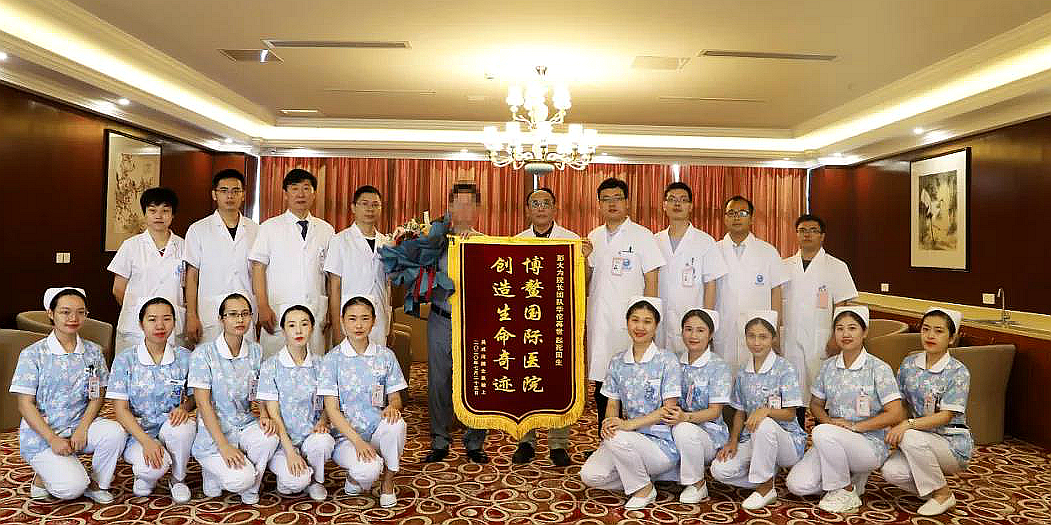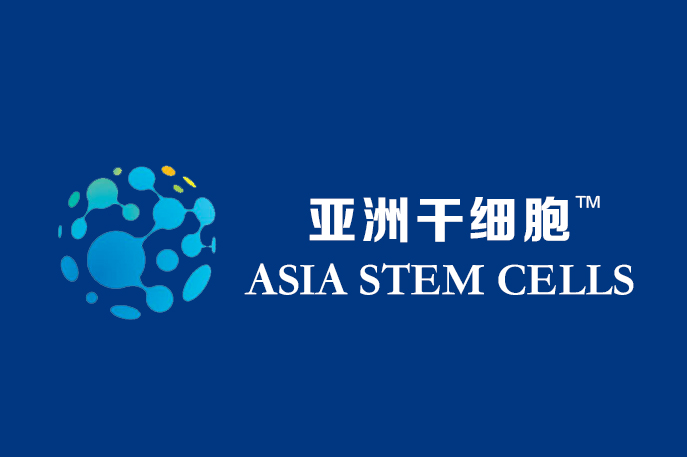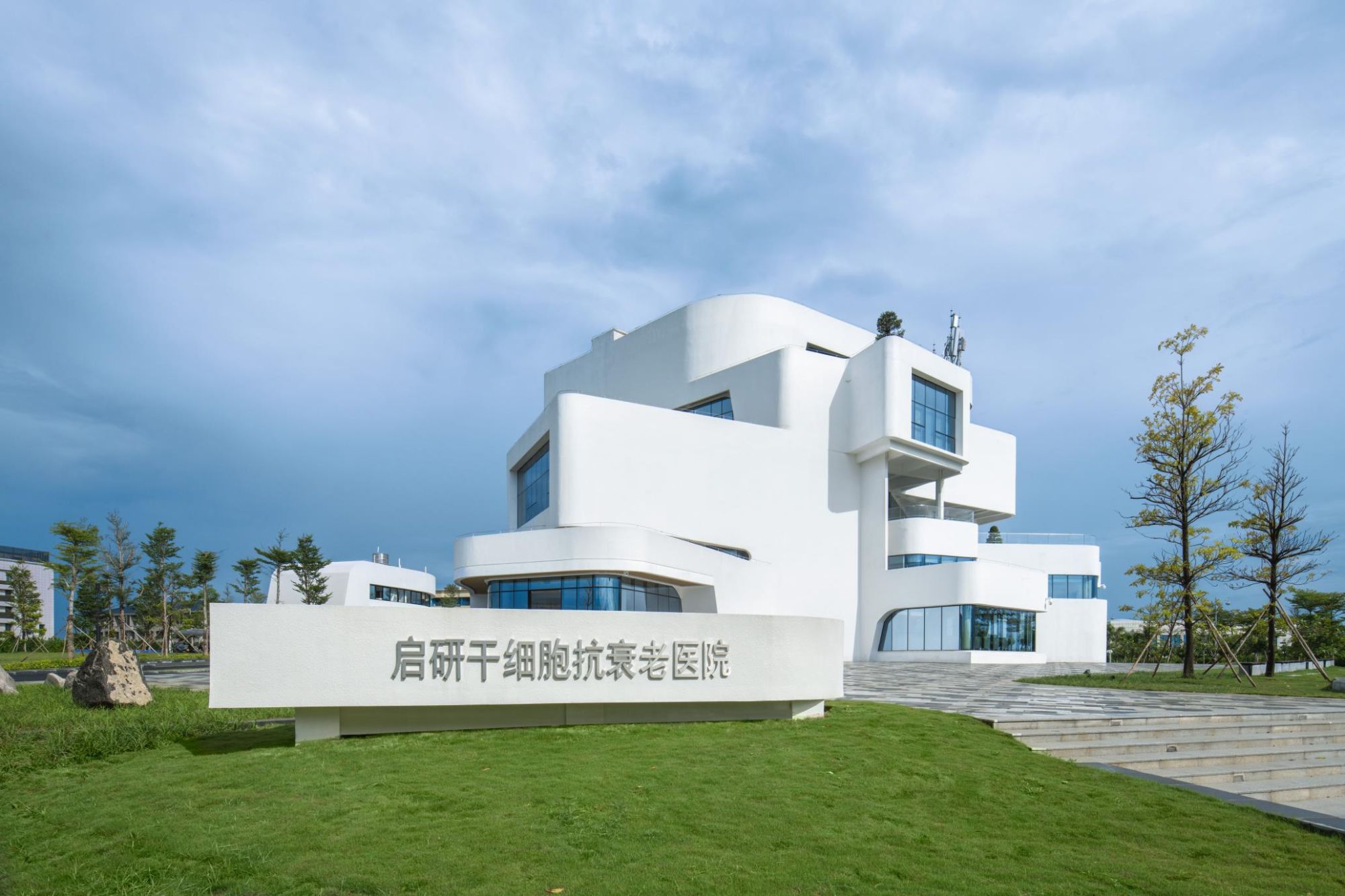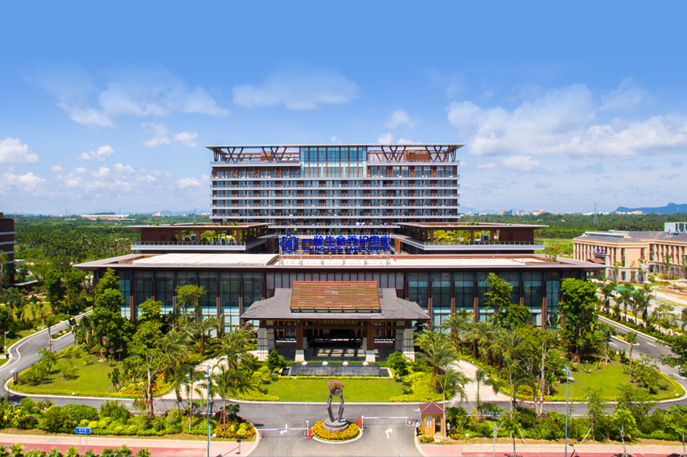Home>Updates
Patient with malignant melanoma successfully cured in Hainan Boao Lecheng

A group photo of Peng Dawei's team at Boao International Hospital and the patient who was cured of melanoma. [Photo/Hainan Daily]
The Boao International Hospital at the Boao Lecheng International Medical Tourism Pilot Zone, South China's Hainan Province, recently received a silk banner from a patient who was diagnosed with melanoma in March and cured by the hospital in only three months, Hainan Daily reported.
The patient surnamed Wu is 65 years old, and he was diagnosed with the most aggressive malignant melanoma in March this year, with a window of less than two months for him to find a cure. It was so urgent but it was unfeasible go abroad for treatment at that time due to the spread of the COVID-19.
At the beginning of April, Wu, who was struggling to get medical treatment in China, came to the Boao Lecheng International Medical Tourism Pilot Zone, following the last glimmer of hope.
"Thanks to the favorable policies of the pilot zone, Wu could be cured," said Peng Dawei, President of Boao International Hospital. Based on Wu's previous diagnosis and treatment, the hospital conducted remote consultation with international experts and quickly worked out therapy plans for him, including chemotherapy, targeted drug therapy, interventional embolization therapy, and immune series therapy.
In addition, with the support of the Hainan Provincial Health Commission, the Hainan Medical Products Administration, and the administration of the pilot zone, Boao International Hospital searched for medicine worldwide and finally got approval to import special drugs in only three days.
"It was the Boao Lecheng International Medical Tourism Pilot Zone that gave me a second life when I was told to give up treatment," Wu said excitedly.
I recovered very well after three months of treatment, he said. "My weight has even increased by 5 kg and I can go back to work normally."
The largest lesion in Wu's liver has shrunk from 10 cm long to 1.8 cm and has become necrotic and liquefied, and others have disappeared. The treatment has achieved the expected results.
"Many of my relatives and friends are amazed at the treatment results and believe it is a miracle," Wu added.
The silk banner shows Wu’s trust in the hospital and the pilot zone, as well as his recognition for the medical team's diagnosis and treatment services, Peng Dawei said.
"The successful treatment result came from the joint efforts of all medical workers in the hospital and is a driving force for our future progress. By making full use of support policies of the pilot zone, we will continue to be dedicated to providing patients with high-quality medical services," Pend added.

 Video: Foreign envoys send best wishes to Hainan FTP
Video: Foreign envoys send best wishes to Hainan FTP Hainan Xinshengquan International Cell Therapy Hospital
Hainan Xinshengquan International Cell Therapy Hospital  Neology Stem Cell Anti-Aging Hospital
Neology Stem Cell Anti-Aging Hospital  Boao Yiling Life Care Center
Boao Yiling Life Care Center 